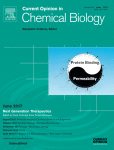 Decades ago, unbeknownst to each other, two chemists were independently working on a screening approach to identify new potential drugs. Both published papers about the technique around the same time. So now, when scientists write papers that cite the technique, who should get credit for discovering it?
Decades ago, unbeknownst to each other, two chemists were independently working on a screening approach to identify new potential drugs. Both published papers about the technique around the same time. So now, when scientists write papers that cite the technique, who should get credit for discovering it?
Decades later, that question still hasn’t been answered — and the researchers continue to argue, this time over one’s decision not to cite the other’s work.
More than 30 years ago, Árpád Furka—now retired from Eötvös Loránd University in Budapest—developed an approach he says has had “outstanding importance” in drug development. The technique, called split-mix synthesis, made it possible to synthesize and screen millions of peptides at once, instead of one by one. Furka patented the method in 1982, presented an abstract in 1988, and published a paper in 1991. Continue reading Chemists duke it out over who was first to discover a 30-year-old technique
 The U.S. Office of Research Integrity has removed an issue of its quarterly newsletter, without including a public notice explaining why.
The U.S. Office of Research Integrity has removed an issue of its quarterly newsletter, without including a public notice explaining why.



 When the former editor of a public health journal didn’t get a straight answer about why the journal retracted his paper that was critical of corporate-sponsored research, he brought his concerns to
When the former editor of a public health journal didn’t get a straight answer about why the journal retracted his paper that was critical of corporate-sponsored research, he brought his concerns to 
